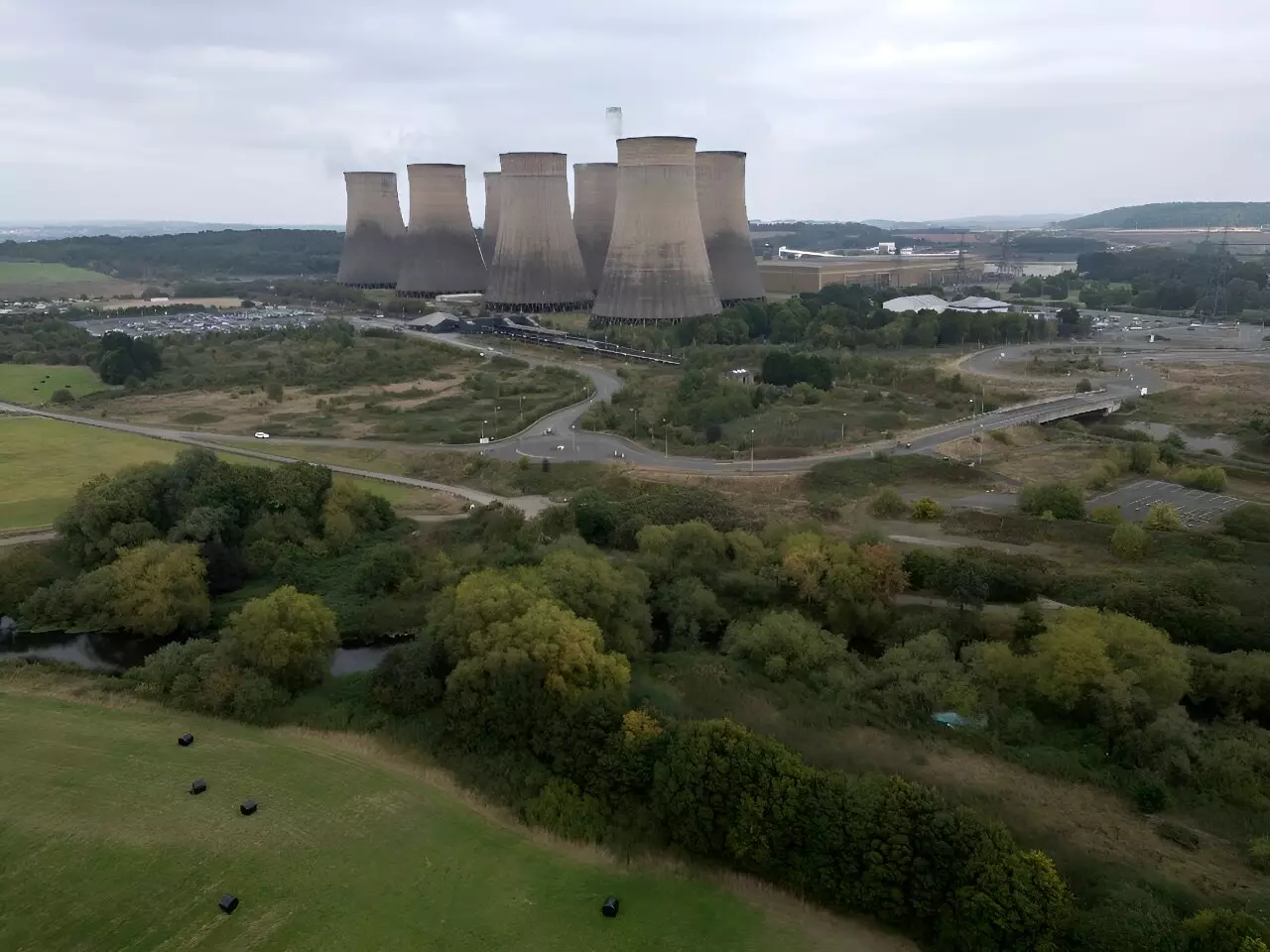The closure of Ratcliffe-on-Soar, the final coal-fired power station in the UK, symbolizes a pivotal moment in the country’s energy history. This landmark event, occurring on Monday, showcases Britain’s commitment to eliminating fossil fuels from its electricity generation—a goal that positions the UK as the first G7 nation to complete such a transition. The shift away from coal represents more than just a change in energy sources; it marks a profound commitment to decarbonization and reflects a global urgency to address climate change.
Energy Minister Michael Shanks aptly stated that while “the era of coal might be ending,” a new chapter of opportunities lies ahead for green jobs. This declaration encapsulates the broader implications of the closure: the potential for a cleaner economy powered by sustainable energy sources. As the world grapples with the consequences of climate change, Britain’s move away from coal serves as a beacon for other nations to follow.
The conclusion of operations at Ratcliffe-on-Soar will undoubtedly impact the workforce associated with the power station. Uniper, the site’s owner, announced a structured decommissioning period set to last two years, which will see around 350 employees reassigned or offered redundancy options before the end of 2026. This process highlights the critical need for governments and businesses to provide a safety net for workers transitioning from fossil fuel jobs to roles in the burgeoning green energy sector.
Such redeployment strategies can minimize the social fallout that often accompanies closures of longstanding energy facilities. The narrative surrounding a “carbon-free technology and energy hub” proposed for the location of the former coal plant is a promising development. It not only illustrates a shift towards innovative energy solutions but also signifies a commitment to fostering green jobs and a sustainable economic foundation in the region.
Coal has shaped the UK’s industrial landscape for over a century, but its time is waning. Historically, coal has played an indispensable role in fueling the Industrial Revolution, morphing the UK into a global superpower. However, as environmental awareness accelerates, the reliance on coal has seen a sharp decline—from 70% of the electricity mix in the 1980s to a mere 1% last year. This seismic shift indicates a growing recognition of the environmental repercussions associated with coal power and a desire to move toward cleaner alternatives.
Despite its rich history, critics recognize that the transition from coal must also involve phasing out reliance on natural gas, which still accounts for a significant portion of energy production. As the UK seeks to further decarbonize its energy portfolio, the focus must shift to maximizing the use of renewable resources, such as wind and solar energy. In 2023 alone, wind energy generated a quarter of the country’s electricity, a remarkable statistic that reflects the potential of renewables to fill the void left by coal.
The Road Ahead: A New Energy Landscape
As the Labour government initiates its ambitious green energy plan, marked by the establishment of a publicly owned entity to invest in offshore wind, tidal, and nuclear power, it symbolizes a proactive approach to reshaping the country’s energy future. The transition away from coal to a more diverse energy mix, bolstered by renewable sources, is paramount for achieving Britain’s environmental targets, including the pledge to become carbon neutral by 2050.
Indeed, while the closure of Ratcliffe-on-Soar signifies the end of coal in Britain’s current energy narrative, it also represents a transformation towards a sustainable future. As the UK sets a precedent for other G7 nations, such as Italy and Germany, the global community watches closely. If successful, this transition could inspire a broader movement towards renewable energy and less reliance on fossil fuels, critically influencing global energy policies.
The journey does not conclude with the closure of one power station; it is but a stepping stone toward larger ecological goals. Industry leaders and policymakers must remain vigilant, pushing for further advancements in energy technology and consistent investment in green initiatives. The fight against climate change requires collective action, and as nations look to the UK for inspiration, the legacy of coal can be transformed into a future driven by innovation, sustainability, and responsible energy practices. By building upon this momentous occasion, the UK can not only secure its energy independence but also play a pivotal role in the global movement towards a cleaner, greener planet.

